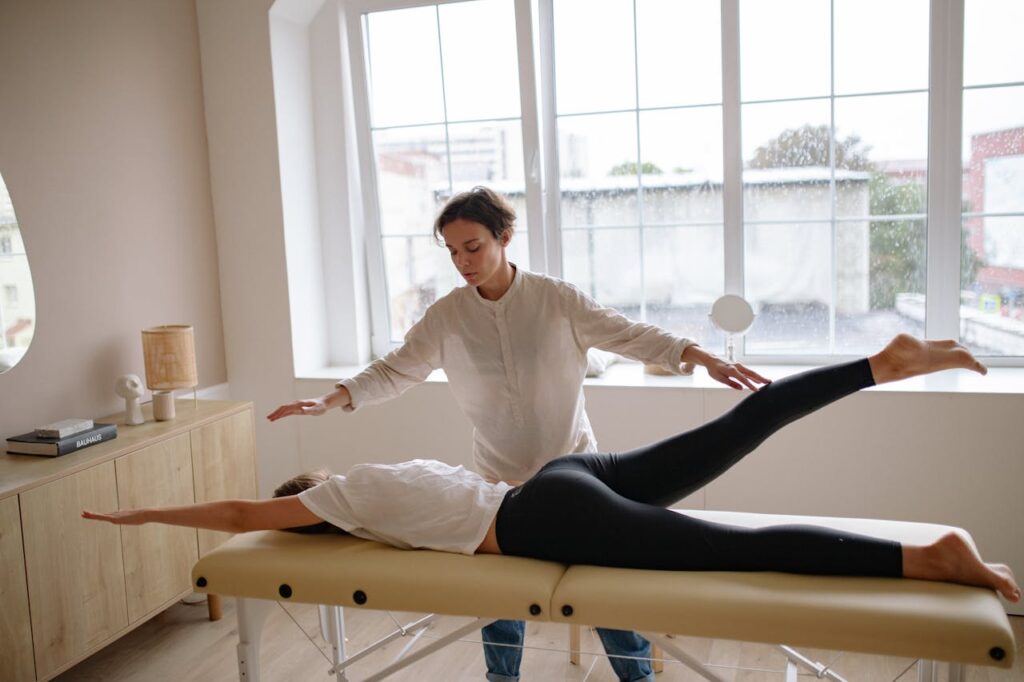Introduction
Physiotherapy degree Luxembourg is a dynamic and vital healthcare profession focused on improving mobility, relieving pain, and enhancing the quality of life for individuals suffering from physical ailments. It plays a crucial role in rehabilitation, injury prevention, and the management of chronic conditions. As healthcare systems evolve and the global population ages, the demand for skilled physiotherapists has surged. This trend has prompted countries like Luxembourg to enhance their educational frameworks for producing highly qualified professionals.
In Luxembourg, the pathway to becoming a physiotherapist is structured and rigorous, offering students a comprehensive Bachelor of Physiotherapy program. These programs are designed to equip graduates with the necessary theoretical knowledge and hands-on experience required to meet the growing needs of the healthcare sector.
Overview of Physiotherapy Education in Luxembourg
Luxembourg offers a well-established framework for students pursuing a physiotherapy degree in Luxembourg. The core of this education is the Bachelor of Physiotherapy program, which spans three years and culminates in a qualification that meets European standards. The program typically consists of 180 ECTS credits, combining in-depth theoretical studies with extensive practical training.
During the first part of the program, students focus on core subjects such as anatomy, physiology, biomechanics, and basic therapeutic techniques. These theoretical modules are essential for understanding the human body and the mechanisms of various physical conditions.
What sets Luxembourg’s physiotherapy programs apart is their strong emphasis on practical training. Students are required to complete a minimum of 1,600 hours of clinical internship, gaining firsthand experience in hospitals, private clinics, rehabilitation centers, and other healthcare settings.

By the end of their studies, graduates are prepared to meet the demands of physiotherapy practice in diverse clinical settings, ranging from hospitals to sports facilities and rehabilitation centers.
Admission Requirements for Physiotherapy Programs in Luxembourg
To enroll in a physiotherapy program in Luxembourg, prospective students must meet specific academic and language requirements. The fundamental entry criterion is the completion of a high school diploma, or its equivalent, that provides a solid foundation in sciences, particularly in subjects such as biology, chemistry, and physics.
In addition to academic qualifications, students must demonstrate proficiency in the languages of instruction. Most physiotherapy programs in Luxembourg are taught in French, with some parts potentially offered in English. As such, a strong command of the French language is required for successful participation in the program, as students will need to comprehend lectures, read academic texts, and communicate effectively with instructors and patients during clinical internships. For international students or those whose first language is not French, institutions typically require proof of French proficiency through standardized language tests.
While not all institutions in Luxembourg mandate English proficiency, students may be asked to demonstrate their command of the language through tests such as TOEFL or IELTS, especially if their previous education was not conducted in English.
In some cases, prospective students may also be required to undergo an interview as part of the admissions process. The interview typically assesses the candidate’s motivation, communication skills, and understanding of the physiotherapy profession.
Some programs may impose additional prerequisites, such as specific coursework in biology or health sciences, or a minimum grade point average (GPA) to ensure that students are adequately prepared for the rigors of the program.
Curriculum and Practical Training in Physiotherapy
The curriculum spans three years and is structured to cover a broad range of topics necessary for effective physiotherapy practice. Students are introduced to the core subjects of anatomy, physiology, biomechanics, kinesiology, and pathology in the early stages of the program.
As students progress through the program, they explore more specialized areas, including musculoskeletal, neurological, and cardiopulmonary physiotherapy. Courses in therapeutic techniques, rehabilitation, manual therapy, and exercise prescription are included to prepare students for the diverse clinical scenarios they will encounter. Additionally, students are taught the importance of evidence-based practice, critical thinking, and patient communication, all of which are essential skills for physiotherapists.
One of the defining features of physiotherapy education in Luxembourg is the emphasis on practical training. Students are required to complete at least 1,600 hours of clinical internship as part of their degree program. This practical component is integrated throughout the course and begins early in the program, allowing students to apply theoretical knowledge to real-world situations.
The physiotherapy internships in Luxembourg are conducted in a variety of healthcare settings, offering students broad exposure to different aspects of physiotherapy practice. Hospitals are a primary setting where students gain experience treating patients with acute conditions, recovering from surgery, or managing chronic illnesses.
Rehabilitation centers also play a significant role in the clinical training of physiotherapy students. These centers often focus on patients recovering from severe injuries, neurological disorders, or long-term disabilities, providing students with an opportunity to develop specialized skills in these areas.
Cost of Studying Physiotherapy in Luxembourg
The cost of studying physiotherapy in Luxembourg varies depending on the institution, but the tuition fees are generally in line with other European countries offering high-quality education. The tuition fees cover academic instruction, access to facilities, and some course materials, but they do not include other living expenses or additional costs associated with the program.
In addition to tuition fees, students must consider other financial obligations. It is important for prospective students to budget for this expense, as it is separate from tuition fees and is often due before the program officially begins.
While the cost of physiotherapy education in Luxembourg may be relatively moderate compared to other European countries, students should be aware of additional living expenses. These costs include accommodation, food, transportation, and materials such as textbooks and clinical supplies. Luxembourg is known for its high standard of living, and living expenses can be considerable, especially for international students.

For those seeking financial assistance, scholarships or financial aid options may be available. Luxembourg offers some institutional scholarships and government support to help offset the cost of education. Prospective students are encouraged to research scholarship opportunities at their chosen institution or consult with financial aid offices to explore possible funding avenues. In addition, some private organizations and international bodies may offer scholarships specifically for healthcare students, including those pursuing physiotherapy degrees.
Career Opportunities for Physiotherapists in Luxembourg
Physiotherapists in Luxembourg are in high demand due to the country’s strong healthcare system and the increasing need for rehabilitation services, particularly with an aging population. The physiotherapy career opportunities in Luxembourg are diverse, offering a broad range of employment options in both public and private sectors. The job outlook for physiotherapists remains positive, as healthcare services continue to expand and evolve to meet the needs of the population.
Hospitals provide a variety of rehabilitation services, including post-surgical recovery, neurological rehabilitation, and trauma care, where physiotherapists play an essential role in helping patients regain mobility and manage pain. Luxembourg’s public hospitals often employ physiotherapists across different specialties, from musculoskeletal conditions to cardiac rehabilitation.
In addition to hospitals, private clinics are another major source of employment. Physiotherapists in private practice often treat patients dealing with musculoskeletal injuries, sports-related issues, and chronic pain.
Rehabilitation centers also represent a significant portion of the job market for physiotherapists in Luxembourg. These centers typically focus on patients with long-term disabilities, neurological disorders, and severe injuries.
Professional practices, including sports medicine clinics and wellness centers, are other potential employers. Physiotherapists in these settings treat athletes and individuals looking for preventive care or rehabilitation from sports injuries.
Regarding physiotherapist career progression, salaries in Luxembourg are competitive. Job benefits for physiotherapists in Luxembourg typically include health insurance, pension plans, and opportunities for continuing education and professional development, all of which contribute to the overall appeal of this career path.
Certification and Registration: Becoming a Licensed Physiotherapist
To practice as a physiotherapist in Luxembourg, graduates must complete a physiotherapy registration process with the Luxembourg Physiotherapy Association (ALP). This process is a crucial step in ensuring that physiotherapists meet the professional standards required to deliver high-quality care to patients.
Upon completing a Bachelor of Physiotherapy degree from an accredited institution, graduates must submit an application to the ALP for registration. This includes providing proof of academic qualifications, clinical training hours, and any additional documentation required by the ALP. The registration process is designed to verify that the graduate has met the educational and practical training requirements necessary to work as a physiotherapist in Luxembourg.
Once registered with the ALP, physiotherapists are authorized to practice in the country. Registration with the ALP is also essential for securing employment in both public and private healthcare settings. It allows physiotherapists to work legally and ensures that they adhere to professional ethics and standards.
In addition to the initial registration, physiotherapists in Luxembourg are required to engage in continuing professional development throughout their careers. This can include attending workshops, taking specialized courses, or participating in research activities to stay updated with the latest developments in physiotherapy practice.
Continuing Education for Physiotherapists in Luxembourg
Physiotherapy continuing education in Luxembourg is an essential aspect of maintaining professional standards and ensuring that practitioners are equipped with the latest knowledge and skills. The Luxembourg Physiotherapy Association (ALP) plays a central role in offering ongoing education to licensed physiotherapists.
ALP provides various opportunities for physiotherapists to engage in continuing education, including workshops, specialized courses, and conferences. These educational activities are designed to help professionals stay updated with the latest advancements in the field, such as innovative rehabilitation techniques, the use of new technologies in patient care, and updated evidence-based practices.
In addition to general courses and workshops, ALP often organizes conferences where professionals can learn from leading experts in physiotherapy and related fields. These events foster a collaborative environment, allowing practitioners to discuss emerging trends, share insights, and network with peers from around the world.
Continuing education is not only beneficial for improving clinical skills but also for career advancement. Physiotherapists who pursue further education are often better positioned to take on leadership roles, teach, or engage in research projects. By committing to lifelong learning, physiotherapists in Luxembourg can ensure that they continue to provide the highest standard of care throughout their careers.








